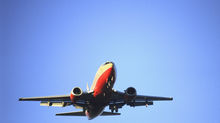Smooth sailing but cloudy skies ahead
As we come to the end of another hot summer in the
Northern Hemisphere, we're also nearing the end of this year's peak period for airline travel when most airlines make the majority of profits and build war chests to carry them through the slower months of the year.
Big profits
This year has been particularly bountiful since it is only over the past few months that most airlines have started to see benefits of lower fuel prices with less and less of their fuel having been hedged this far out. Still, some airlines seem to have a least some of their fuel hedged at $80 or $90 dollars, or even higher, for many months to come.
Passing savings on to customers
Many airlines are passing these savings on to customers in the form of lower fares with some even reducing or eliminating fuel surcharges altogether (albeit some have also added some of this back in higher base fares). But the industry contiues to see lower fares.
Unsustainable business model
Why do airlines keep passing on the cost savings when typically the industry doesn't make enough profits during good years to offset the losses in the bad years? It seems the issue is generally overcapacity. As airlines struggle with low or non-existent profits, they seem to keep investing in more efficient aircraft. This seems logical, but that efficiency often comes not through like for like capacity but partially through increasing capacity as well - ie spreading fixed costs across more seats on a plane. There is a fundamental problem with this - it requires airlines to be able to attract more passengers. But those passengers don't exist at the current fares, so they stimulate demand with lower fares. And the cycle continues, with cost savings not resulting in profit improvements due to the erosion of yields.
The verdict
This cannot go on. Airlines need to stop apologizing for making profits in good years and need to refrain from chasing lower unit costs through scale. The problem lies in the structural cost base which needs to become more efficient. Current fuel prices will not last. While consensus appears to be that fuel prices will remain lower for quite some time, we believe they will begin to rise in the fourth quarter of this year and will rise steadily throughout 2016, adding pressure on airlines which will seem to be caught off guard by this.






















